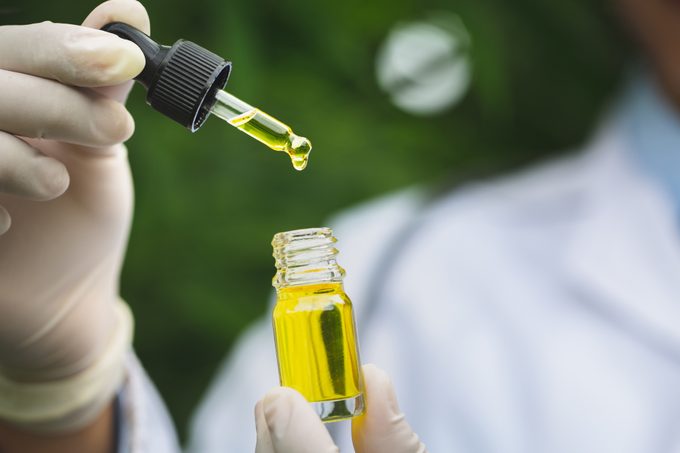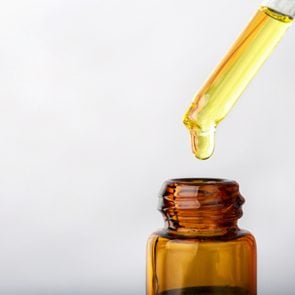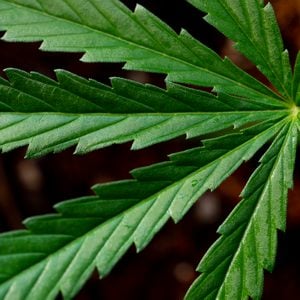What You Should Know About Using CBD for ADHD
Updated: Mar. 02, 2021
The use of CBD for ADHD to help with focus and attention is still questionable. Here's what the science says about treating ADHD symptoms with CBD.
Does CBD work for ADHD?
If you didn’t know better, you might think CBD (short for cannabidiol) is a cure-all. CBD, specifically CBD oil, has been touted as a remedy for ailments ranging from anxiety to insomnia. CBD can help prevent seizures and has shown promise in easing pain.
But what about CBD for behavioral conditions, like attention-deficit hyperactivity disorder (ADHD)?
There are certainly plenty of other approaches people with ADHD can use to manage their symptoms. Effective stimulant and non-stimulant medications are available for children and adults. Plus, healthy lifestyle habits, like getting enough sleep, exercising regularly, and eating a healthy diet can make a difference in helping to control symptoms, experts agree. (Here are some home remedies for ADHD that are worth giving a try.)
When it comes to CBD for ADHD, however, there’s no concrete scientific evidence to support its use. Most of the research has focused on cannabis as a whole and not CBD alone without delta-9-tetrahydrocannabinol (THC). As a result, using CBD to manage ADHD symptoms is questionable. (This is the difference between CBD vs. THC.)
Here’s everything you need to know about the potential benefits, side effects, and legality of CBD for ADHD.
What is ADHD?
About one in 10 school-age children have ADHD. Most of the time, this neurodevelopmental disorder persists into adulthood, according to Children and Adults with Attention Deficit-Hyperactivity Disorder (CHADD), a nonprofit serving people affected by ADHD.
People with ADHD have difficulty controlling their attention and focus, and/or show a pattern of hyperactive impulsivity.
Those with predominantly inattentive ADHD will make careless mistakes, lose things, and appear disorganized and easily distracted.
People with predominantly hyperactive-impulsive ADHD fidget, run around excessively (children), or are restless (adults). CHADD notes that people with this type of ADHD may seem as though they’re being driven by a motor inside them.
Then there are people with ADHD who have both types of symptoms, which is called “ADHD combined presentation.” (Here are some ways to get organized with ADHD.)
What the science says
A handful of studies have looked at CBD in combination with THC for people with ADHD, and have suggested some benefit. But so far, there’s no evidence to support using CBD alone to help with ADHD symptoms.
A clinical trial of nabiximols—an oral spray containing a roughly equal amount of CBD and THC—found slight, but not statistically significant improvements in some ADHD symptoms, with no cognitive impairment. The findings, published in 2017 in European Neuropsychopharmacology, support the theory that people with ADHD may use marijuana to manage their symptoms without experiencing cognitive impairment as a result.
A small German study of 30 medical marijuana patients with ADHD found better concentration, sleep, and reduced impulsivity when they used cannabis. These findings were presented at the 2015 Cannabinoid Conference.
But there’s no randomized controlled trial evidence to show whether CBD reduces symptoms in people with ADHD, or whether it’s safe for them to take.
What the experts say
There’s anecdotal evidence to suggest that CBD could be helpful for people with ADHD, as well as plausible explanations for why it might be good for their brain, says Bonni Goldstein, MD, medical director and owner of Cannacenters, a medical practice in Los Angeles.
“CBD now has pretty substantial scientific literature behind it as this incredible anti-inflammatory, neuroprotectant and antioxidant,” says Dr. Goldstein, who is also author of Cannabis is Medicine: How Medical Cannabis and CBD are Healing Everything from Anxiety to Chronic Pain. “This is like the trifecta of protection.”
“I am not aware of any scientific or clinical data that would speak to the safety or efficacy of using CBD in the treatment of ADHD,” Ryan Vandrey, PhD, a professor of psychiatry and behavioral sciences at John Hopkins University School of Medicine, recently told ADDitude, a consumer magazine about ADHD. “There is no scientific basis from which CBD should be recommended for use as a treatment for ADHD, nor is there any data that could speak to which product or dose would be appropriate.”

How CBD works and how to use it
There are no formal guidelines on how to use CBD for ADHD. So it’s best to exercise caution and talk to your doctor to decide what’s best for you or your child.
If you do opt to use CBD oil for ADHD, it’s important to understand how it interacts with the body. CB1 and CB2 cannabinoid receptors—which are part of the body’s endocannabinoid system that regulates and balances body function, like your immune response—engage with CBD when it enters the body. Then, upon ingestion or vaping, the body begins to produce more cannabinoids.
This stimulation is believed to lead to several health benefits, like a decrease in anxiety.
CBD oil is either vaped or ingested orally. CBD is believed to enter the bloodstream more quickly through vaping. However, the Centers for Disease Control and Prevention warns about the potential dangers of vaping tied to the outbreak of EVALI (e-cigarette or vaping use-associated lung injury). You can also take CBD capsules or even eat a CBD edible.
Side effects of CBD
CBD is generally considered safe, with reported side effects including sleepiness, nausea, and diarrhea. However, it can interact with several medications, making some less effective and others more potent. Overall, the side effects of CBD depend on how you take it. The U.S. Food and Drug Administration (FDA) warns CBD may cause liver injury.
Is CBD legal?
It depends on a few things, including the legal status of marijuana where you live. Marijuana for adults is legal in 15 states and three territories. Medical marijuana is legal in 36 states, the District of Columbia, Guam, Puerto Rico, and the U.S. Virgin Islands. Several states that do not allow medical marijuana do permit the medical use of low THC, high CBD products.
If marijuana is legal where you live, you probably have access to CBD products that have been tested and inspected. This means these products are probably safe, but they’re still illegal under federal law.
Under the 2008 Farm Bill, farmers are allowed to grow hemp, defined as Cannabis sativa with a THC content of no more than 0.3 percent. But the bill didn’t legalize CBD. In fact, marijuana and all its components, including CBD, are classified as Schedule 1 by the U.S. Drug Enforcement Administration. This means they are considered to have no medical benefit and a high potential for abuse.
A word about Epidiolex
There is one form of CBD that is legal: Epidiolex, a synthetic version of CBD. In 2018, it was approved by the FDA for treating seizures in young children with Lennox-Gastaut syndrome and Dravet syndrome. It was approved in 2020 for tuberous sclerosis complex, another childhood seizure disorder. (Learn more about using CBD for seizures.)
Because CBD is now an active ingredient in an FDA-approved drug, the agency says, it can’t be regulated as a dietary supplement. And interstate commerce in CBD-spiked food products is also illegal. (Here are the unexpected epileptic seizure triggers.)
CBD products: The gray area
The FDA has sent warning letters to CBD manufacturers making unfounded health claims for their products, but does not conduct its own inspections.
“CBD products are in a very clear gray area,” says Jahan Marcu, founding partner of cannabis consultancy Marcu & Arora and editor-in-chief of the American Journal of Endocannabinoid Medicine. “If you were to take CBD products into a federal laboratory, you would be arrested.”
Meanwhile, numerous studies of unregulated CBD products—the kind you might see for sale at a gas station or tobacco shop—have found they often don’t contain the claimed amount of CBD, and may be contaminated with heavy metals, pesticides, and even THC.
(Here’s what you need to know about CBD oil for dental pain and anxiety.)
The last word
The use of CBD for ADHD is still up for debate. With a lack of credible research that focuses solely on the effects of CBD on ADHD symptoms, it’s difficult to gauge whether it can be a potential treatment. However, if you’re interested in trying CBD for ADHD, it’s best to consult your doctor about legal issues, dosing, and side effects.
Next, learn about the difference between CBD oil vs. hemp oil.



